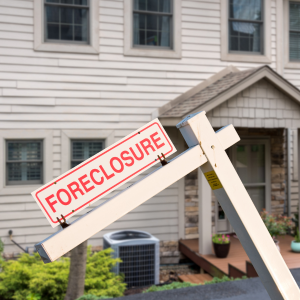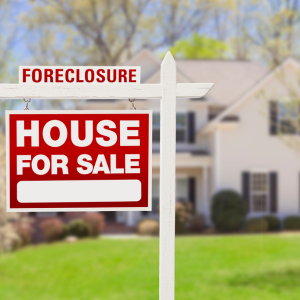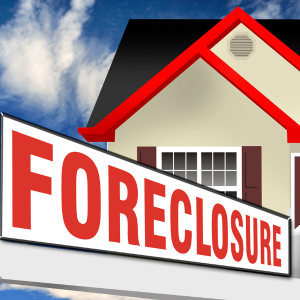
Understanding Foreclosure Processes in Atlanta, GA: A Comprehensive Guide
You need to know all of the complicated legal and financial steps that are needed to get kicked out of your Atlanta, GA, home. For the most part, Georgia lenders can return a home without going to court. They can do this up to 37 days after the debt is due.
People who own their own homes need to act quickly when they get a Notice of Default or Notice of Sale because of this short time frame. It’s important to know what to do in Atlanta as soon as you get these letters. For example, you could talk to your lender about stopping the process or changing your loan.
It may be best to sell your home for cash in Atlanta, GA, before it goes into sale to protect your credit and avoid deficiency fines. You should know how much your house is worth when you put it on the market. Getting help from a real estate agent with experience who knows the Atlanta housing market can speed up the process of selling.
Another thing you should know is that Georgia has rules that say people can’t get back their sold homes. This makes it even more important to move quickly and proactively.
Understanding Georgia’s Laws on Mortgage Default and Property Sale
If you are in Atlanta and want to deal with foreclosure, you need to know all of Georgia’s rules about foreclosure and property sales. Most of the time, Georgians don’t have to go to court to sell their homes. This means that if the mortgage deal has a power of sale language, lenders can start the foreclosure process without going through the court.
With this efficient process, lenders can quickly sell the property at auction after giving the borrowers notice that they can’t pay. Georgia law says that lenders have to give 30 days’ notice before they can hold a foreclosure sale. This is important information for people whose homes might go into default. People who live in their own homes don’t have much time to do anything.
Selling your home may be a good idea right now to keep it from going into debt and to protect your funds. Atlanta homeowners who want to sell their home before it’s too late need to know these legal limits and needs.
Working with real estate agents who specialize in pre-foreclosure sales can help you get through these tricky situations, make sure you follow all state rules, and raise your chances of making a sale.
Exploring Loan Modification and Refinancing as Alternatives to Selling
Instead of selling their house, people in Atlanta facing default might want to look into loan modification and refinancing. When you change a loan, you talk to the lender about changing the terms of the debt. For instance, if you change the interest rate or extend the loan time, your monthly payments might decrease.
This option could be very helpful for people who are having trouble paying their bills. However, when you refinance, you get a new mortgage, possibly one with better terms or a lower interest rate.
It might be a good idea to refinance if the market has improved since the first loan was taken out. To use either plan, you need to know a lot about your money and be able to talk to lenders easily to find out if you qualify and if the plan will work.
If homeowners in Atlanta want to ensure that their choices will help them reach their long-term financial goals, they should also talk to financial advisers or real estate agents who are knowledgeable about alternatives to foreclosure.
Evaluating Your Options: Short Sale Vs. Foreclosure Sale in Georgia

You need to know the difference between a short sale and a foreclosure sale if you live in Atlanta and your home is about to go into default. In Georgia, which of these options you pick can have a big impact on your credit score and future finances.
If the lender agrees, a short sale means selling your home for less than what’s still owed on the mortgage. This might be good for your credit and keep you from having to go through the real process of eviction. This option might benefit if you have a ready buyer and time to talk with your lender.
If you haven’t been paying your mortgage payments on time, the lender will start to sell your home at auction. This is called a foreclosure sale. Having a home taken away can hurt your credit score for a long time, making it harder to get loans in the future.
This is important because Georgia’s removal process is mostly not based on the law, which can make things go faster once they begin. Atlanta homeowners need to carefully consider all of their options, taking into account the current market and their personal situations. This way, they can choose the road that best protects their finances and has the fewest long-term effects.
Strategies for Negotiating with Lenders During the Pre-foreclosure Period
People in Atlanta who want to sell their homes before it’s too late need to know how to talk to lenders during the time before the sale. Keep the lines of contact open with your provider to begin. Being open about your money can help you gain trust, which could lead to better terms.
You should know everything about the terms of your loan, like when the default will happen and what fees or fines may be charged. You can now find options that will work, like a short sale, that could keep both parties from going through the whole foreclosure process.
Hire an Atlanta real estate agent who has worked with pre-foreclosure sales before. They can help you talk to the provider and give you useful information. You could also talk to an expert about what to do. They can tell you about the law that applies to Georgia’s default rules and help you make a full plan for how to negotiate.
Now is not a good time to reach an agreement with your lender. You have a better chance of doing so if you show that you are serious about fixing the problem and offer carefully thought-out solutions.
Financial Implications of Selling a House During the Foreclosure Process
People in Atlanta who owe money on their homes should carefully consider what will happen to their finances if they sell their homes during the default process. Selling your home if you are facing eviction can help you keep some of your money and keep your credit score from going down.
People who decide to sell their homes before the foreclosure is over may not have to pay the extra legal fees and fines that come with it. However, it is important to know that selling in this case usually leads to money troubles. If the house is worth less than the mortgage, you might have to pay off any debts that are still connected to it and try to get the lenders to agree to a short sale.
You can get through this difficult process and keep your finances from getting worse by talking to real estate agents who specialize in homes that need work. This will also make the process of selling your home faster and less stressful. Sellers should also consider how the sale of their home or the forgiveness of their debt may affect their taxes, impacting their overall earnings.
Legal Considerations for Selling a Home in Foreclosure in Atlanta
If you want to sell a foreclosed home in Atlanta, you need to know about the legal issues involved so that the process goes smoothly. Georgia homeowners should be aware of the state’s specific foreclosure rules, which mostly deal with non-judicial foreclosure processes.
To avoid problems, it’s important to carefully read any mortgage papers and talk to an experienced real estate lawyer who specializes in foreclosure cases. Sellers also need to know their rights during the selling process. For example, they can get the loan back by paying off any late fees before the sale date.
It is also important to look at any debts or other claims against the property, as these could affect the sale and how the money is distributed. Speaking with an experienced real estate agent who knows the Atlanta market well can help you set a price that will attract buyers quickly.
Not telling potential buyers enough about the property’s foreclosure is not only the right thing to do, but it’s also the law. This will help avoid future problems or disputes with buyers. Knowing these law details can make a big difference in how well you can sell your home when you’re having money problems in Atlanta’s fast-paced real estate market.
Steps to Take Before Selling a House Under Foreclosure in Georgia
Selling a house in debt in Georgia is difficult and needs to be planned out carefully and done quickly. First, it’s important to know your rights and responsibilities under Georgia’s foreclosure rules, which are not always the same as those in other states.
Talking to a real estate lawyer or debt expert who specializes in this area is important to make sure you understand all the legal issues involved. Once you have a better idea of what’s going on, talk to your lender about possible options, like modifying your loan or approving a short sale, which could give you more options for selling your home.
Finding out how much your home is worth on the market through a professional appraisal or comparative market study will help you set a price that will attract buyers quickly. Hire an experienced real estate agent who knows how to deal with homes in bad shape. They can help you stage your home correctly and sell it to people who might be interested in buying it.
Also, make sure that all the repairs that need to be done are done within your budget to make the house look its best. When there are foreclosure deadlines, it’s important to handle your time well. Nance Homebuyer can help here by guiding you through the process and keeping things on track. To keep the sale process from getting derailed by unexpected delays, make a timeline that lists each step from listing to closing.
Tips for Finding Buyers for a Home in Foreclosure in Atlanta

If you are going through foreclosure, it is very important to find buyers for your Atlanta home quickly. Keep the outside of your house in good shape and fix anything that needs fixing to attract interest.
It’s important to set a fair price for your home. To do this, you might want to work with a real estate agent who has dealt with foreclosures before. You should do a good job of selling your home. Use the Internet, social media, and neighborhood real estate ads to reach many people.
Open houses and video tours can showcase your home’s best features and get people excited. It can also be helpful to connect with local owners who deal with troubled homes. They might be able to speed up the process.
People might also be more interested in a deal that includes bonuses, such as paying the closing costs or letting the buyer choose when they want to move in.
How to Navigate Selling a Foreclosed Property in Georgia
To sell a bank-owned home in Georgia, you need to make a plan. This is especially true in cities like Atlanta, where the real estate market is very competitive. Georgia has strict rules about foreclosures that can make it hard for you to sell your home. Understand these rules carefully.
First, get the house fully inspected to learn how much it’s worth on the market. This will help you set a fair price to get people to buy and pay off your mortgage. It can be very helpful to work with a real estate person who has done foreclosure sales before. They can help you put your house on the market and deal with people who want to buy it.
Taking care of any liens or title issues with the house before selling it also helps the deal go more quickly. If you sell your home well, you can quickly attract serious buyers. Professional photos and ads that focus on its best features can help.
Also, it’s important to stay in touch with your lender during this time to find out what they can do to help your funds stay in good shape. If the buyers handle every step, the deal is more likely to go through before the foreclosure process is over.
Common Mistakes to Avoid When Selling a Foreclosed Property
When trying to sell a foreclosed home in Atlanta, many people make some common mistakes that can slow down the process and lower their chances of making money. A big mistake is not learning enough about the real estate market in the area. This can lead you to set the price of the home too low.
Too high or too low a price can turn away serious buyers and make the sale take longer. Potential buyers may not be interested in buying a house if it is improperly prepared and staged. Things they see, like clutter or repairs that need to be done, may turn them off.
Another mistake many people make is not marketing the house well enough. In a market as competitive as Atlanta’s, it’s important to use professional photos and ads online to get people excited. People who own homes also try to figure out the difficult rules about foreclosure on their own, which can cause mistakes or delays that cost a lot of money.
You can avoid these problems and speed up the selling process by working with real estate agents who have done this before and know how to deal with foreclosures. Last but not least, not telling buyers about the property’s health or legal status can hurt your credibility and even get you in trouble with the law over time. Contact us today to learn how we can help.
Tax Consequences of Selling Your Home While Undergoing Foreclosure
You should know about the tax issues that could happen if you sell your Atlanta home before you have paid all of your bills. If you have a short sale and your lender forgives some of your mortgage debt, you may owe many taxes. This is because the IRS treats debt forgiveness as income that needs to be taxed.
This could make your money problems even worse if they are already bad. Forgiveness Debt Relief Act, on the other hand, could help you. Because of this law, some homes don’t have to pay taxes on mortgage debt that was forgiven.
Talk to a tax expert who knows the federal and Georgia tax rules. This way, you can figure out how they apply to your situation. Tax Implications of Selling Home are an important factor to consider, as understanding them can help you reduce what you owe and keep more of your profit. These tax changes will help you deal with extra costs while you try to sell your home before it goes into foreclosure.
The Impact of Foreclosure on Your Credit Score and Future Home Buying
Foreclosure can hurt your credit score and make it harder for you to buy a house in the future. Atlanta renters need to know what’s going on. This is based on your score before the foreclosure. If you have a foreclosure on your record, it could drop by 100 to 160 points.
Because of this big drop, it might be harder for you to get loans now. Also, if you ever want to get another loan, the interest rates will be different. Being in foreclosure can hurt your chances of getting a good mortgage when you want to buy another home. This is because the record can stay on your report for up to seven years.
Lenders also often think that people who have lost their homes through foreclosure are untrustworthy sellers. This could mean that you need to put down more money or not get a loan at all. These bad things happen to many people in Atlanta, so they sell their homes before they go into debt to protect their financial situations.
They should do this to prevent their credit score from going too low. In the future, they should still be able to find good housing choices.
Resources and Support Systems Available for Homeowners Facing Foreclosure
There are many services and groups in Asheville that can help people who are going through the scary process of foreclosure. The Atlanta Housing Authority and the Georgia Department of Community Affairs are two groups in the area that help people figure out how to keep their homes from going into default.
HUD also allows housing therapy groups that can help people learn how to pay their mortgages and follow the law. Trained experts work at helplines run by organizations like the Homeownership Preservation Foundation. They can tell you what you can do to keep your home from going into foreclosure, like selling it or making changes to your loan.
Many banks also have teams that help people avoid default by finding deals like short sales and deeds-in-lieu. Online and at neighborhood events, you can learn how to get kicked out of a place. You can also get the help you need to quickly and easily sell your house before it’s too late.
These tools can greatly help people who are about to lose their homes with their money.
Can You Sell Your Home If You Are in Foreclosure?

You can sell your house even if it is in debt. To make sure you can sell your Atlanta foreclosure before it’s too late, you need to act quickly and plan strategically.
If you are facing foreclosure, you need to act quickly before the process goes too far and you can’t go back. Atlanta homeowners need to know that selling their home before it goes into pre-foreclosure can be a good way to keep it and maybe even keep their credit score from worsening.
If you decide to sell your house fast for cash in Fayetteville, GA, while it is in foreclosure, you might be able to pay off your mortgage and stop the foreclosure process. It’s important to work with real estate agents in Atlanta who have experience dealing with foreclosure homes.
They can help you set a fair price for your home and quickly negotiate with people who want to buy it. Talking to a real estate lawyer who knows Georgia’s default laws will also help you make sure you follow the rules and protect your rights during the whole process.
It might seem scary to sell your home while it is in foreclosure, but it is possible to get your finances back on track if you make smart decisions and get professional help.
How Long Is the Foreclosure Process in GA?
The non-judicial foreclosure rules in Georgia make the foreclosure process pretty quick. It can take as little as 37 days from start to finish. Because of this shorter time frame, people in Atlanta who are facing default need to sell their homes quickly before it’s too late.
First, there is a Notice of Default, and then, at least 30 days before the sale, there is a Notice of Sale. Because of this short time, homeowners in Georgia who want to look into other options like short sales or standard home sales need to know how long the foreclosure process takes.
Atlanta homeowners can get through this tough time and maybe even keep their home from going into foreclosure by working with real estate agents who are experienced in foreclosures and looking at all of their choices.
How Long Can a House Sit in Foreclosure?
Sometimes, the eviction process can be difficult, especially if you need to sell your Atlanta home quickly. In this situation, homeowners need to know how long a house can stay in default.
Due to its non-judicial default process, Georgia’s foreclosure process is pretty quick compared to other states. You usually have 90 days from when you missed a mortgage payment before the lender can start the default process.
The real length of time your home is in foreclosure, on the other hand, depends on several factors, such as how the lender handles the case and any attempts to negotiate or modify the loan. From the notice of failure to the auction sale, the whole process can take as little as four months on average.
People who own homes can stop the process at this point by selling their homes through standard sales or short sales. Your chances of selling your Atlanta home quickly and with the help of real estate agents who specialize in troubled properties can go up, and you can avoid having your credit score hurt by foreclosure.
Ready to sell your home? Whether you need a fast sale or want to avoid costly repairs, Nance Homebuyer simplifies the process. We provide fair cash offers, handle all the details, and give you peace of mind from start to finish. Have questions or want a no-obligation offer? Call us today at +17707582729 and get started immediately.
Helpful Atlanta Blog Articles
- Selling a Probate House in Atlanta, GA
- Can I Sell My House if It is in Foreclosure in Atlanta, GA
- How to Sell an Investment Property in Atlanta, GA
- Paperwork for Selling a House by Owner in Atlanta, GA
- Navigating an Inherited House with Siblings in Atlanta, GA
- Selling a House with Foundation Problems in Atlanta, GA
- How Long After an Appraisal Can You Close in Atlanta, GA?
- How Long Can a Seller Stay in the House After Closing in Atlanta, GA
- Can Heir Property Be Sold in Atlanta, GA?
- Can You Sell a House As Is Without Inspection in Atlanta, GA?
- Do I Need a Lawyer to Sell My House in Atlanta, GA?
- Tax Implications of Selling Home in Atlanta, GA
- Sell a House with Title Issues in Atlanta, GA
- Sell a House with a Squatter in Atlanta, GA

| FORECLOSURE AUCTION | FORECLOSING | EFFECTS OF FORECLOSURE | FORECLOSURE DEFENSE | MORTGAGE LENDERS | HOME LOAN |
| MORTGAGE LOANS | PRIVATE LENDERS | ATLANTA, GEORGIA | BANK | INFORMATION | ATTORNEYS |
| LAWYER | ENTER A JUDGMENT | DEBTOR | MONEY | BANKRUPTCY | AUCTIONED |
| CASH | TAXED | FANNIE MAE | FANNIE MAE FOUNDATION | PROMISSORY NOTE | LAWSUIT |
| LITIGATING | THE U.S. DEPARTMENT OF HOUSING AND URBAN DEVELOPMENT | THE DEPARTMENT OF HOUSING AND URBAN DEVELOPMENT | HUD’S | SHERIFF’S SALE | PUBLIC AUCTION |
| EVICTION | AMERICA | U.S. | UNITED STATES | PRIVACY | |
| TENANTS | RATE OF INTEREST | DEED IN LIEU OF FORECLOSURE | CHAPTER 13 BANKRUPTCY | BIDDER | AUTOMATIC STAY |
| POSTAL CODE | ZIP CODE | TELEPHONE NUMBER | TELEPHONE | STATUTES | REPAYMENT PLAN |
| REAL PROPERTY | NEWSPAPER | LEASE | LEASING | CREDIT HISTORY | CREDIT RECORD |
| COUNTY COURTHOUSE | COURTHOUSE | COMPANY | ASSET | BANKRUPTCY COURT | CERTIFIED MAIL |
| REFINANCE | RECEIPT | REO | REAL ESTATE OWNED | POLICY | MORTGAGE SERVICING |
| JUDGE | INVESTMENT | FULTON COUNTY | DATA | CONTRACTUAL RIGHTS | |
| CONTRACTS | A LOAN MODIFICATION | OF THE PROPERTY | TO YOUR LENDER | THE LENDER MAY | ON YOUR MORTGAGE |
| THE FORECLOSURE SALE | FILE FOR BANKRUPTCY | DEED IN LIEU OF | TO A REAL ESTATE |
